I have a dataframe with 3 columns a, b, c like below:
df = pd.DataFrame({'a':[1,1,5,3], 'b':[2,0,6,1], 'c':[4,3,1,4]})
I want to add column d which is sum of some columns in df, but is not the same column for each row, for example
only row 1 and 3 is sum from the same column, row 0 and 2 is sum from others columns.
what I found on Stack over flow is always for certain column for whole dataframe, but in this case it is differnt.
How is the best way I can do it?
